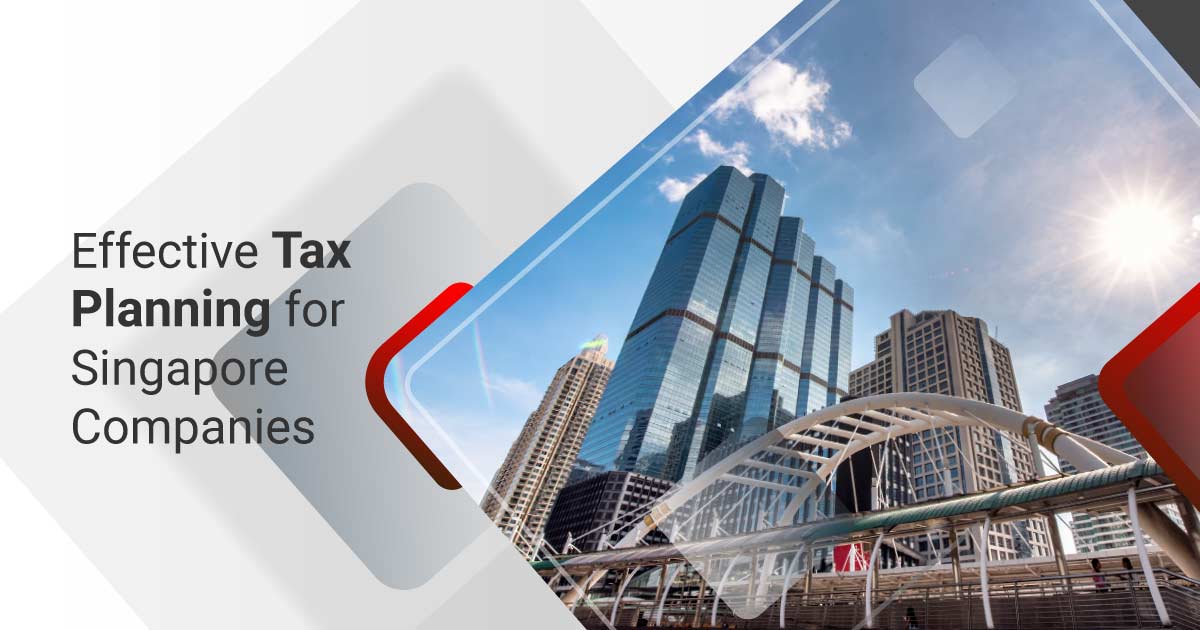Inside This Article:
In today’s volatile economy, businesses need to plan their taxes effectively to remain competitive in the global market.
As advances in technology diminish physical constraints on a company’s business, multi-national corporations (“MNCs”) have found that they can greatly benefit from re-structuring their businesses to leverage on the strengths and resources of various countries.
Nike is one such example, with operations in 45 countries and over 70,000 employees. The majority of Nike’s manufacturing activities are carried out in developing countries, such as Vietnam, where manpower is plentiful and raw materials can be purchased at a fraction of the cost.
The rest of its corporate offices employ professional staff in areas such as management, research, design, development, marketing, finance and other administrative functions in the U.S., Europe, China, Japan and the Asia Pacific (APAC).
The Impact of Corporate Taxation
Notably, another factor that has been pushing MNCs towards relocating a substantial portion of its business operations is the impact of tax on their profits.

| Name of Country | Corporate Tax Rate* |
|---|---|
| Australia | 30% |
| United Kingdom | 25% |
| United States | 21% |
| France | 25% |
| Italy | 24% |
| China | 25% |
| Singapore | 17% |
| Bermuda | 0% (15% effective 1st Jan 2025) |
| Cayman Islands | 0% |
*The tax rate reflected does not account for specific tax incentives that certain companies may qualify for. For example, Singapore’s effective tax rates are significantly lower. Use our corporate tax calculator to estimate your effective tax rates, or use our global tax calculator to see how other jurisdictions stack up against Singapore.
As evident from the table above, corporations based in developed countries such as Australia, France, Italy and the U.S. can expect to pay taxes ranging from 21% to 30% of their profits, which is rather substantial.
Understandably, large MNCs such as Google and Apple have employed strategies to significantly reduce their taxes, such as transfer pricing. Income is allocated to subsidiaries located in tax havens such as Bermuda and the Cayman Islands while expenses are allocated to subsidiaries in higher-tax countries to reduce taxable income.
 However, in tandem with increasing scrutiny from tax authorities, increasing public concerns about how offshore companies are being abused for money laundering, tax evasion and fraud have resulted in MNCs beginning to shy away from offshore entities.
However, in tandem with increasing scrutiny from tax authorities, increasing public concerns about how offshore companies are being abused for money laundering, tax evasion and fraud have resulted in MNCs beginning to shy away from offshore entities.
Instead, MNCs are now beginning to look towards “intermediate” countries, such as Singapore, which is not a zero-tax regime, but has many tax friendly policies in place that can significantly reduce the amount of tax payable.
Singapore – A Dynamic Financial Hub
Unlike other offshore jurisdictions such as Bermuda, Cayman Islands and the British Virgin Islands (BVI), Singapore is a reputable and dynamic financial hub, with 119 commercial banks to cater to the frenzy of economic activity in this small nation-state.
Singapore’s one-tier tax system with a flat corporate rate of 17% is one of the lowest in the world. Moreover, having recognised the importance of the need to continue attracting foreign investment, the government has made significant effort to negotiate for Avoidance of Double Taxation Agreements (“DTAs”), limited DTAs and Exchange of Information Arrangements (“EOI Arrangements”) with about 100 jurisdictions.
Get Expert Help for Corporate Tax
Doing so eliminates the problem of double taxation that can occur when tax laws consider an individual or corporation to be a resident of more than one jurisdiction.
Foreign Tax Credit
When a Singapore company earns foreign income, it might be subject to taxation twice – the first, in the foreign jurisdiction, and the second, when it is remitted into Singapore.
Singapore companies can make use of these foreign tax credit schemes to reduce the double taxation incurred:
Double Tax Relief
Under a DTA, a company can obtain a relief, DTR, which comes in the form of a tax credit. A DTR enables a Singapore tax resident to claim a credit for the tax paid in the foreign jurisdiction against the Singapore tax
Unilateral Tax Credit (UTC)
Companies can claim the foreign tax credit when they file their corporate income tax returns, specifically Form C. They must meet these requirements to qualify:
- Company must be a Singapore tax resident
- Tax must be paid or is payable on the same income in the foreign jurisdiction
- Income must be subject to tax in Singapore
FTC Pooling System
Having taken into account the fact that MNCs have spread out their operations across the globe, the FTC pooling system is one that simplifies tax further for companies and their associated subsidiaries.
With the FTC pooling system, companies that fulfil all of the following conditions will be able to claim tax credits:
- Foreign income tax is paid on the income in the foreign country from which the income is derived;
- The highest corporate tax rate (headline tax rate) of the foreign country from which the income is derived is at least 15% at the time the foreign income is received in Singapore; and
- The company is entitled to claim for FTC under the Income Tax Act and there is Singapore tax payable on the income.
Other than these tax credits, there are various other tax incentives that companies can benefit from, a snapshot of which is depicted below:
| No. | Tax Incentives | Description |
|---|---|---|
| 1 |
|
|
| 2 |
|
|
| 4 |
|
|
| 5 |
|
|
| 6 |
|
|
| 7 |
|
|
| 8 |
|
|
| 9 |
|
|
| 10 |
|
|
| 11 |
|
|
With these tax incentives, paired with its first-class infrastructure, strategic location in the Asia-Pacific region and population of highly skilled and bilingual workforce, Singapore is undoubtedly one of the most attractive jurisdictions for MNCs to anchor their regional headquarters or a substantial proportion of its operations.
FAQs on Tax Planning
- Effective tax planning involves strategies that legally reduce tax liability, optimise financial performance, and ensure compliance with tax laws and regulations. Examples include using schemes such as the DTA to to prevent double taxation.
- You can engage a tax expert such as Rikvin to assist in optimising your taxes, including taking advantage of the tax incentives.
- The objective of effective tax planning is to minimise a company’s tax liability legally to optimise financial efficiency and support long-term growth and sustainability.
Need help with long-term tax planning for your Singapore company?
Rikvin has corporate tax specialists who can help you with your tax filing needs. Contact us now for a free consultation.

Rikvin’s content team includes in-house and freelance writers across the globe who contribute informative and trending articles to guide aspiring entrepreneurs in taking their business to the next level in Asia.


